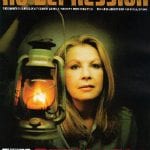Doghouse Roses
It seemed perfectly suitable when news came that Steve Earle was putting together a collection of short stories. Long considered one of our era’s most literate songwriters, Earle seemed a natural to delve into prose. With Doghouse Roses, Earle proves he can write fiction. It’s sometimes great writing; unfortunately, it’s only sometimes.
Doghouse Roses is an uneven collection. A few stories (“Doghouse Roses”, “Wheeler County”, “The Reunion”) are top-notch efforts, full of wonderful writing, O. Henry twists, and hard-earned wisdom. A few (“A Eulogy Of Sorts”, “The Witness”) are good enough. And a couple others are pretty bad, especially “A Well Tempered Heart”, which reads like a teenage prose-poem, and “Taneytown” — a classic song but not so endearing as a short story.
In the title story, Earle gives us the original and powerful tale of Bobby Charles, a has-been rocker who loses everything to drugs. In tight, conversational prose, Earle creates beautifully drawn characters in Bobby and his fed-up wife, Kim. When Earle writes lines such as, “Kim thought Bobby was cute, in a primitive sort of way, like Crocodile Dundee or something,” or when he lets the story veer from the grimy back-streets of Los Angeles to the awesome beauty of Joshua Tree National Park, he is at his best. This story alone is worth the price of the whole book, and Earle would have been better served to create a novel around Bobby Charles.
One other entry in the collection reads like a masterpiece. “Wheeler County” is the story of Harley Watts, who forms a surprising friendship with a small-town cop — and an even closer relationship to the deputy’s wife. Like the best writers, Earle can tell the readers everything they need to know in one line. Witness his take on Harley: “Every song he’d ever written bore a woman’s given name as its title.” In 20 pages Earle has given us a complete portrait of a man.
There is magical writing here and there, as when an American drug smuggler tries to make his way across the border in the back of a pickup with a group of Mexicans desperate for a better place in “Jaguar Dance”, and in “Billy The Kid”, when Billy “didn’t wait for his eyes to adjust to the dim light in the bar. Instead the light adjusted to him…” Or the vivid, you-are-there description of a government-sanctioned execution in “The Witness”.
If only the rest of the collection were as marvelous. Too often Earle slips into cliche: “[He] was instantly as excited as any school-age child…” He doesn’t trust his fine, instinctual voice enough to let it do the talking, instead finding the need to explain everything for the reader: “Don Santo was a general contractor, which means he bids on any kind of construction job that comes along.”
Sometimes his characters slip out of character, as when a wise old bar owner (who has started out talking exactly like a wise old bar owner) begins saying things like “The venerable institution” and “His family was, naturally, horrified…” Even the beautifully written “The Witness” ends just as you knew it would all along, though Earle seems to believe he has pulled the wool over your eyes. More troublesome is that an air of arrogance hangs over most of these stories. Too often the narrators are smug know-it-alls.
But all is not lost. Earle is at home when he is talking about things he knows best, as all writers are. In those stories, the writing is about as true and sublimely wrought as anyone could ask for. It would be easy to compare his lean prose to Raymond Carver or Larry Brown, but Earle has his own voice and it is a strong one, even when he makes mistakes that mark him as an amateur. He has a natural storytelling ability that will mature when he learns to trust his readers and himself.




